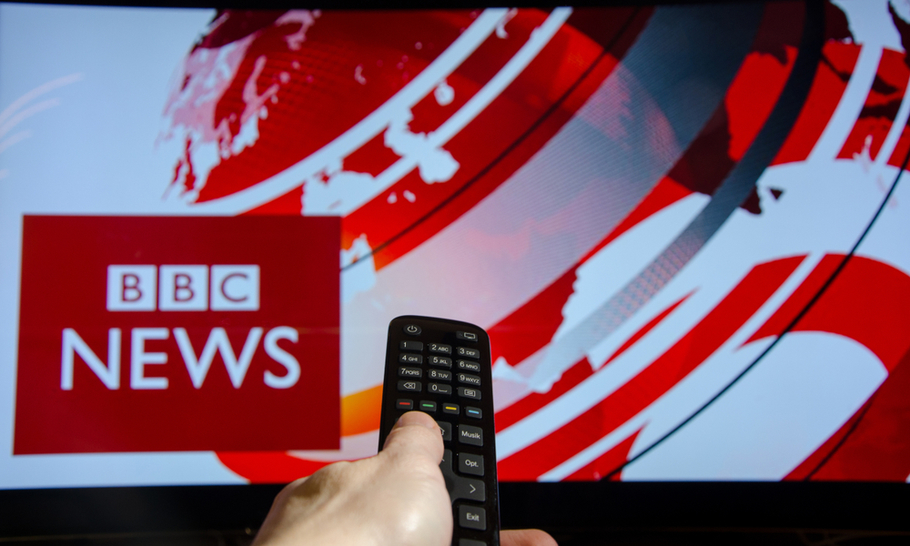Broadcasters should tell us what is happening. Not what to think

In recent years, broadcast journalism has become much less about reporting news, and much more about interpreting it. A BBC current affairs programme will routinely devote plenty of airtime to one BBC journalist interviewing another BBC journalist, and the equivalent applies to other networks. In some ways this is understandable: 24 hour news means there’s a lot of time to fill.
Unfortunately, it does increase the scope for biased coverage. Reporting the news should be factual, and leave it up to us what to think about it. When analysis is offered it might carry pretensions to objectivity, but the prejudices of the pundit are usually not hard to spot.
Madsen Pirie in his book How to Win Every Argument: the Use and Abuse of Logic noted that one technique used is to “try poisoning the well by suggesting that only a lunatic would disagree with them, waiting for the lunatics in question to identify themselves by their disagreement.”
Brexit has made it especially hard for broadcasters to retain any semblance of impartiality. The language used by commentators about a policy of a politician has little meaning beyond showing whether that particular commentator happens to approve or disapprove of the particular policy or politicians in question.
For instance, there is a habit among broadcasters of labelling some views as “moderate” and others as “extreme” or “hardline”. What does it mean in relation to Brexit? The general message is that Brexit is extreme while Remain is moderate. What are the criteria? It might have been thought that implementing the referendum result, as with accepting any other democratic mandate, would be the mainstream option. Apparently not.
Then we have the timing. Three years after the referendum might seem a pretty long delay. But the “moderates” back a further delay. It is the “extremists” who wish to get on with it.
Or the terms of any Brexit deal. Those who would be willing for us to leave without a deal are “headbangers” or “ultras” who wish us to “crash out” or “fall off a cliff”. This is despite there being an array of mini deals already agreed, and there being a default arrangement in place of World Trade Organisation terms. Theresa May’s Withdrawal Agreement would have resulted in us handing over £39 billion to the EU. That is a lot of money. But those who thought it right to pay it were “moderates”, those who felt the sum a bit steep were “extreme”.
Maybe the idea is that being moderate involves splitting the difference. If one person says two and two make four, while another says they make six, then a peacemaker coming forward to declare than two and two make five can be proclaimed as offering a reasonable compromise. On that basis a middle way between Brexit and Remain could be a “deal” where we are not members of the EU but still obey the rules and pay our subscription. This is heralded as a sophisticated way “out of the difficulty” provided people are “flexible” enough to agree.
Then we have the idea that whatever the Liberal Democrats advocate is, by definition, the epitome of reasonableness. On that basis cancelling Brexit entirely, without a second referendum, is “moderate.”
Within the Conservative Party, those who wish us to Remain in the EU are sometimes commended as “one nation” Conservatives. Margaret Thatcher once remarked: “As far as I can tell by their views on European federalism, such people’s creed would be better described as ‘No Nation Conservatism’.” Rather a good swipe. Given the declarations from Eurocrats about the nation state being an entity that should be dispensed with, there does seem to be something or a contradiction in the position of the One Nationers.
Recently, there was plenty of indignation in the media over the Whip being withdrawn from 21 Conservative MPs. They had voted with Labour to take control of the Parliamentary timetable to prevent Brexit taking place on schedule in the event of a “no deal”. The MPs had been warned it would be treated as an issue of confidence. There followed much talk about how draconian and unprecedented this was. But in 1994 eight Tory MPs had the whip withdrawn after refusing to vote for an increase in UK payments to the EU. The then Conservative Prime Minister John Major had made it into an issue of confidence.
But, you see,when Major did it he was kicking out “extremists”. When Boris Johnson does it he is expelling “moderates.” This was repeated in reference to one of the victims, Sir Nicholas Soames, being Churchill’s grandson. It was never quite explained why that should entitle him to special treatment.
But were the public as dismayed as the media by Boris’s decision? As the Conservative MEP Dan Hannan remarked: “Although that purge has horrified commentators, most of whom are in awe of the Europhile grandees, it is a necessary prelude to an election campaign that will turn on Brexit. The Tories could hardly fight an election promising to leave the EU while several of their candidates refused to accept that policy. Though the pundits are fainting like affronted matrons, voters appreciate Johnson’s strength of purpose.”
Surely a position can’t be “extreme” if it is the view of most people? It can when the pundits disagree with it. In those circumstances it is known as “populism.”
If the viewers and listeners just shrug and make up their own minds, perhaps it doesn’t matter. It must be frustrating for the media that the rest of us fail to fall into line. But why don’t the presenters concentrate on telling us what is happening rather than telling us what to think?





